What is free legal aid?
What Is Free Legal Aid and Who Qualifies for It?
Introduction
Access to justice is a cornerstone of any fair and democratic society. Yet, for many, the cost of a lawyer acts as an insurmountable barrier, turning legal rights into mere theoretical concepts. This is where free legal aid steps in—a crucial service designed to bridge the gap between having a right and being able to defend it in a court of law. It is a lifeline that ensures the justice system is not a privilege reserved only for those who can afford high legal fees.
By providing free or low-cost legal services, legal aid can dramatically level the playing field. In civil, family, and criminal cases, it ensures that vulnerable individuals—from those facing unlawful eviction to victims of domestic violence—have the professional representation needed to protect their fundamental rights and promote fairness. Without it, individuals can lose custody of their children, be wrongfully convicted, or lose their homes simply because they couldn't afford an attorney.
This comprehensive guide will demystify the concept of legal aid. We will explore what legal aid means, delve into the specific criteria for who qualifies for legal aid, detail the types of cases covered by legal aid, and provide practical advice on how to apply for legal aid. By understanding this essential resource, you can take the first step toward securing the justice you deserve.
What Does Free Legal Aid Mean?
Free legal aid refers to legal services—including advice, assistance, and representation—provided at no cost or a significantly reduced cost to individuals who cannot afford to pay for private counsel. These services are typically funded by the government, often at the federal or state level, or by dedicated non-profit organizations and pro bono programs.
The fundamental purpose of legal aid is to ensure equal access to justice, a principle that asserts that everyone, regardless of their economic standing, has the right to a fair hearing and the protection of their legal rights. It is an acknowledgment that true justice cannot exist if the outcome of a case is determined solely by the size of one’s bank account.
Legal aid services can take several forms, ranging in depth and scope. Full representation involves a lawyer taking on a client’s entire case, from filing motions to appearing in court. Other services include legal advice, where a lawyer offers a consultation to explain rights and options, and legal clinics, which provide basic assistance, document preparation, or help with self-representation on a specific day or time. Understanding these distinctions is important when seeking help.
Who Can Get Free Legal Aid?
While the goal of legal aid is universal access, the reality is that resources are finite. Therefore, strict eligibility criteria are in place to ensure services are provided to those most in need. Understanding who qualifies for legal aid is the first step in the application process.
The most common eligibility criteria revolve around an individual's financial situation. Applicants must generally fall below a specific income limit, often a percentage of the Federal Poverty Guidelines (FPG) in the United States, or an equivalent local standard. Assets, such as savings, property, and investments, are also usually assessed. An applicant must demonstrate that they truly cannot afford a private attorney. Other common criteria include residency (the legal issue must be within the jurisdiction where aid is sought) and the type of legal issue itself, which must fall within the organization's scope.
Legal aid providers often prioritize specific priority groups who are particularly vulnerable or face severe hardship. These often include:
Low-income families who face issues like eviction or benefit denial.
Victims of domestic violence seeking protection orders or assistance with family law matters.
Immigrants needing help with asylum or deportation proceedings (though often with restrictions).
Veterans seeking assistance with benefits or legal issues related to homelessness.
The elderly facing abuse or issues with wills and benefits.
It is crucial to note that qualification can vary significantly by country, state, and even by the specific legal aid organization. What one office covers, another may not, and income thresholds are constantly changing.
What Types of Cases Are Covered by Free Legal Aid?
One of the most frequently asked questions is about the types of cases covered by legal aid. While the scope can be broad, legal aid focuses primarily on issues that affect an individual's most fundamental needs and security.
Common case areas include:
| Case Area | Description & Examples |
| Family Law | Cases involving the safety and well-being of families, such as divorce where abuse is involved, child custody disputes, and obtaining protection/restraining orders. |
| Housing Disputes | Critical issues like wrongful or unlawful evictions, disputes over repairs, landlord-tenant conflicts, and foreclosures. |
| Employment Rights | Cases related to minimum wage violations, wrongful termination (in specific contexts), unemployment benefits, and workplace discrimination. |
| Consumer Protection | Addressing predatory lending, debt collection abuse, and fraudulent contracts that target vulnerable populations. |
| Government Benefits | Assisting with applications for or appeals against denials of crucial benefits like Social Security Disability Income (SSDI), Supplemental Nutrition Assistance Program (SNAP), and welfare programs. |
| Criminal Defense | For indigent (poor) defendants facing serious criminal charges, legal aid (often through a Public Defender's Office) is a constitutional right to ensure a fair trial. |
It is important to emphasize that legal aid often excludes business-related or high-value civil disputes (like large personal injury claims), where a private attorney could take the case on a contingency fee basis. The focus remains on necessity, not profit.
Real-world examples show the impact: A single mother facing an illegal eviction in winter gets free legal representation and keeps her apartment. A victim of domestic abuse secures a final restraining order, ensuring her safety and the safety of her children. In these moments, free legal aid is the difference between stability and disaster.
How Do I Apply for Free Legal Aid?
The process of applying for legal aid can be straightforward, but it requires preparation and patience. Knowing how to apply for legal aid efficiently can save critical time when you are facing an urgent legal crisis.
Here is step-by-step guidance for the application process:
Contact a Legal Aid Office: The first step is to locate and call your nearest legal aid office, which may be a branch of a national service or a local non-profit. Many have dedicated legal aid hotlines for initial screening.
Initial Screening: A staff member or intake coordinator will conduct an initial verbal screening to determine if you meet the basic financial and case-type criteria.
Complete the Financial Eligibility Forms: If you pass the initial screening, you will be asked to fill out detailed forms regarding your income, assets, and liabilities. This is the most crucial part of proving who qualifies for legal aid.
Provide Documentation: You must provide official proof to back up your claims. This includes proof of income (pay stubs, tax returns, benefit statements), proof of residency (utility bill, ID), and documents related to your legal issue (eviction notice, court summons, etc.).
Case Review and Approval: A lawyer or eligibility committee will review your application and case merits. If approved, an attorney will be assigned to represent you.
If a local office cannot help, you should also seek help from other sources. Many nonprofit legal organizations focus on niche issues (e.g., immigrant rights, environmental justice). Bar associations often run pro bono referral programs, and local university legal clinics can be an excellent source of representation, typically supervised by experienced professors.
Why Is Free Legal Aid Important for Society?
The benefits of legal aid extend far beyond the individual client; they impact the very structure of our communities and democracy. Highlighting the importance of legal aid is key to understanding its crucial social role.
Free legal aid promotes fairness and reduces inequality. It recognizes that complex legal systems are designed to be navigated by professionals. By providing this professional guidance, it ensures that one’s social or economic status does not dictate the quality of justice received. It is a powerful tool for protecting vulnerable groups who are often targets of predatory practices, discrimination, or systemic disadvantage.
Furthermore, legal aid acts as an essential check against systemic injustice. It actively prevents unlawful evictions, which stabilizes communities and reduces homelessness. It combats wrongful convictions, which strengthens the integrity of the criminal justice system. When people feel that the legal system is fair and accessible, it increases public trust in legal systems and strengthens the democratic process. Ultimately, access to justice is not a luxury; it is a critical investment in a more stable, equitable, and just society.
FAQ Section
Is free legal aid available in every state or country?Yes, some form of state-sponsored or non-profit legal aid is available in virtually all developed countries and every state in the U.S. However, the specific rules, funding levels, and types of cases covered can vary dramatically by jurisdiction.
Can I get free legal aid for criminal charges?Yes, under the U.S. Constitution (and similar laws globally), if you face criminal charges that could result in jail time and you cannot afford an attorney, you have the right to a free legal defense, typically provided by a Public Defender's Office or a similar panel of court-appointed counsel.
How long does it take to be approved for legal aid?This depends heavily on the urgency of your case and the legal aid office’s backlog. For emergency cases, such as an imminent eviction or domestic violence protection order, approval can be quick, sometimes within days. For non-urgent civil matters, the process can take several weeks to a few months.
What documents do I need when applying?You will need: photo ID, proof of residency (e.g., utility bill), proof of income for the past 3-6 months (pay stubs, tax returns, benefits statements), proof of assets (bank statements), and all documents related to the legal problem (e.g., court notice, lease, debt collection letter).
If I don’t qualify for legal aid, what other affordable options exist?If you do not meet the strict income guidelines, other options include:
Pro Bono Programs: Volunteer lawyers who take cases for free.
Sliding Scale Firms: Attorneys who charge based on your ability to pay.
Limited Scope Representation (Unbundling): Hiring a lawyer for specific tasks (e.g., drafting a document) instead of the whole case.
Legal Self-Help Centers: Often run by courts to assist with filling out forms.
Conclusion
Free legal aid stands as a powerful testament to the idea that everyone deserves a fair chance in the eyes of the law. It is the vital mechanism that ensures everyone, regardless of financial means, has the opportunity to defend their rights, secure their family’s well-being, and access the justice system. It is not charity; it is a necessary investment in a functional, just society.
If you or someone you know is facing a legal challenge but cannot afford an attorney, do not assume you must navigate the system alone. We encourage you to immediately check local eligibility rules, contact your nearest legal aid office or hotline, and apply for support. Legal aid is not just about helping individuals overcome hardship—it dramatically strengthens entire communities by promoting fairness, reducing social inequality, and reinforcing the foundational principle that justice is for all.
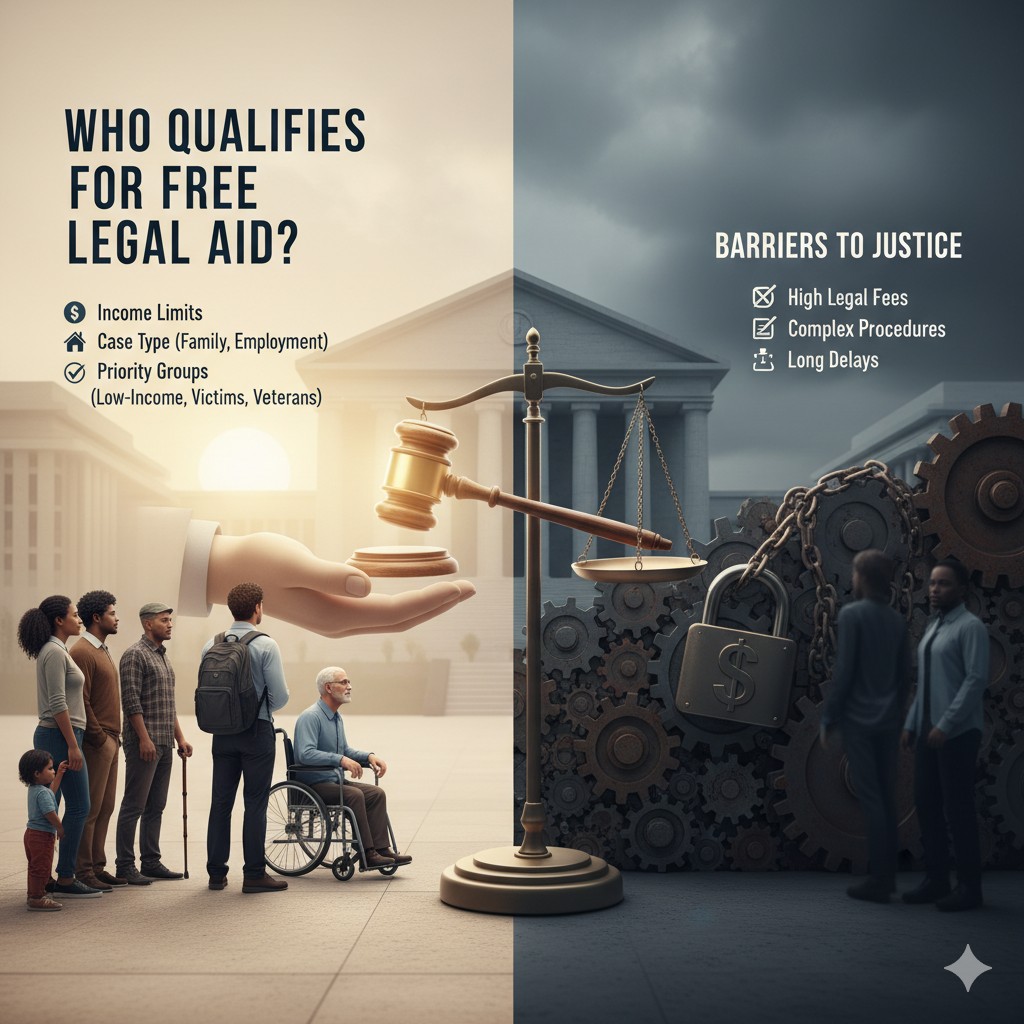

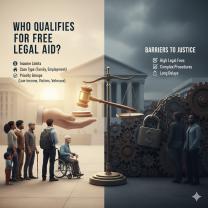



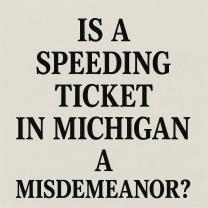

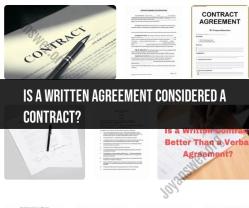
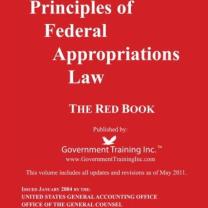
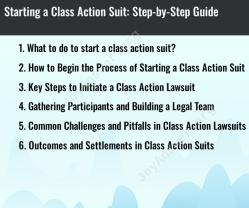

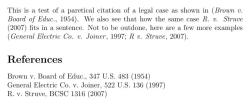
EmpowermentRead
on October 05, 2025This article took a complicated, intimidating subject and made it feel accessible and empowering. Everyone should read this.